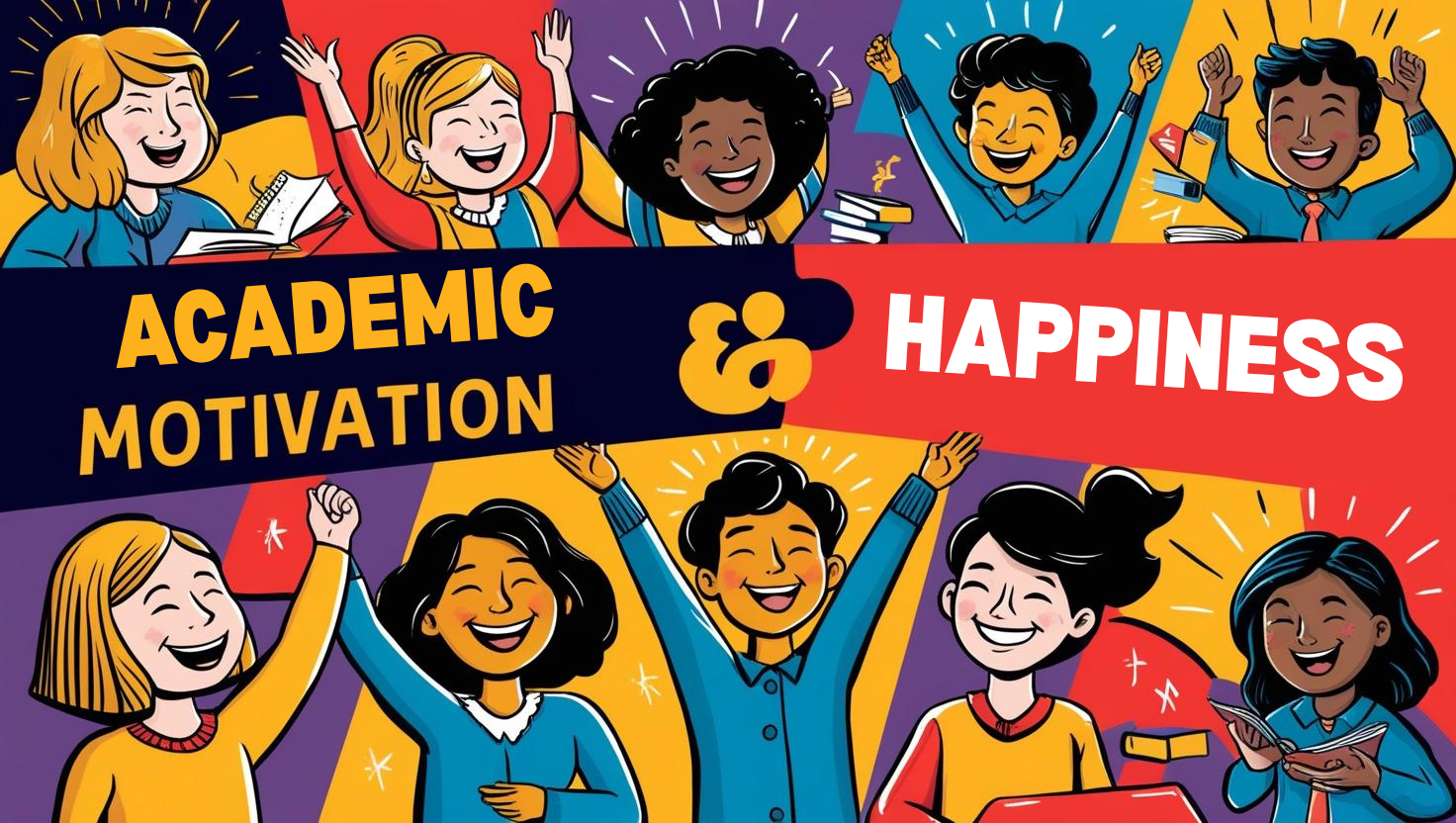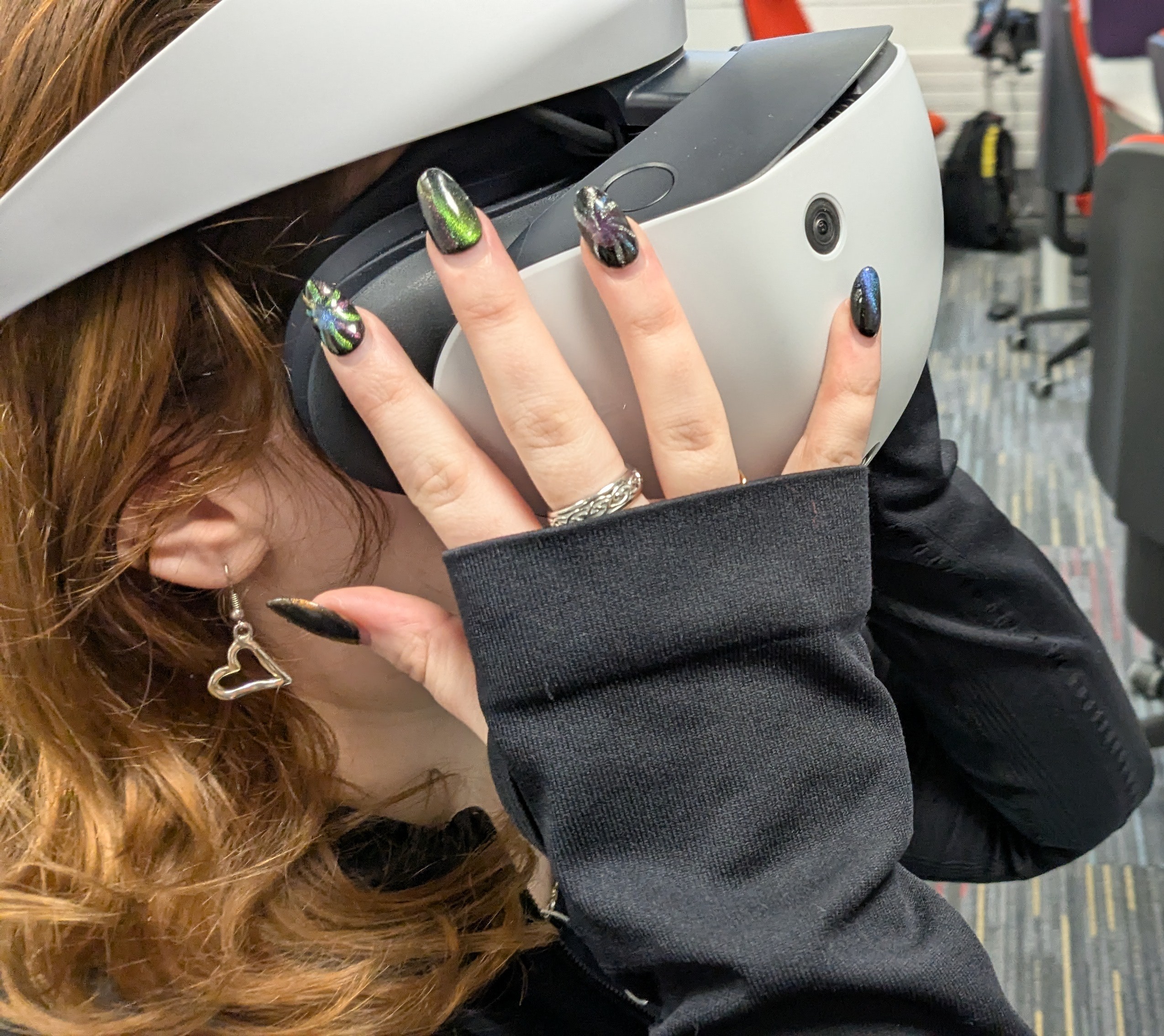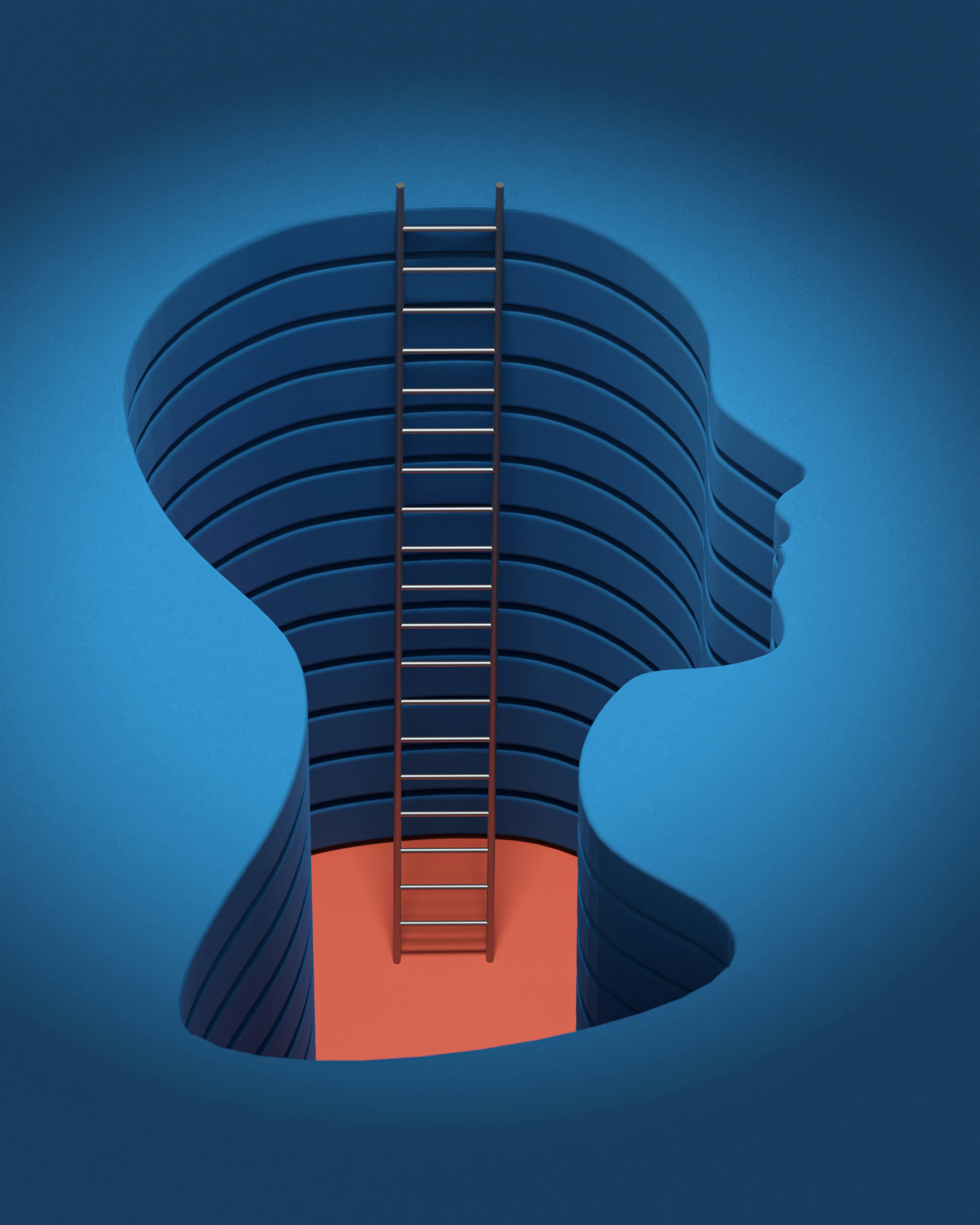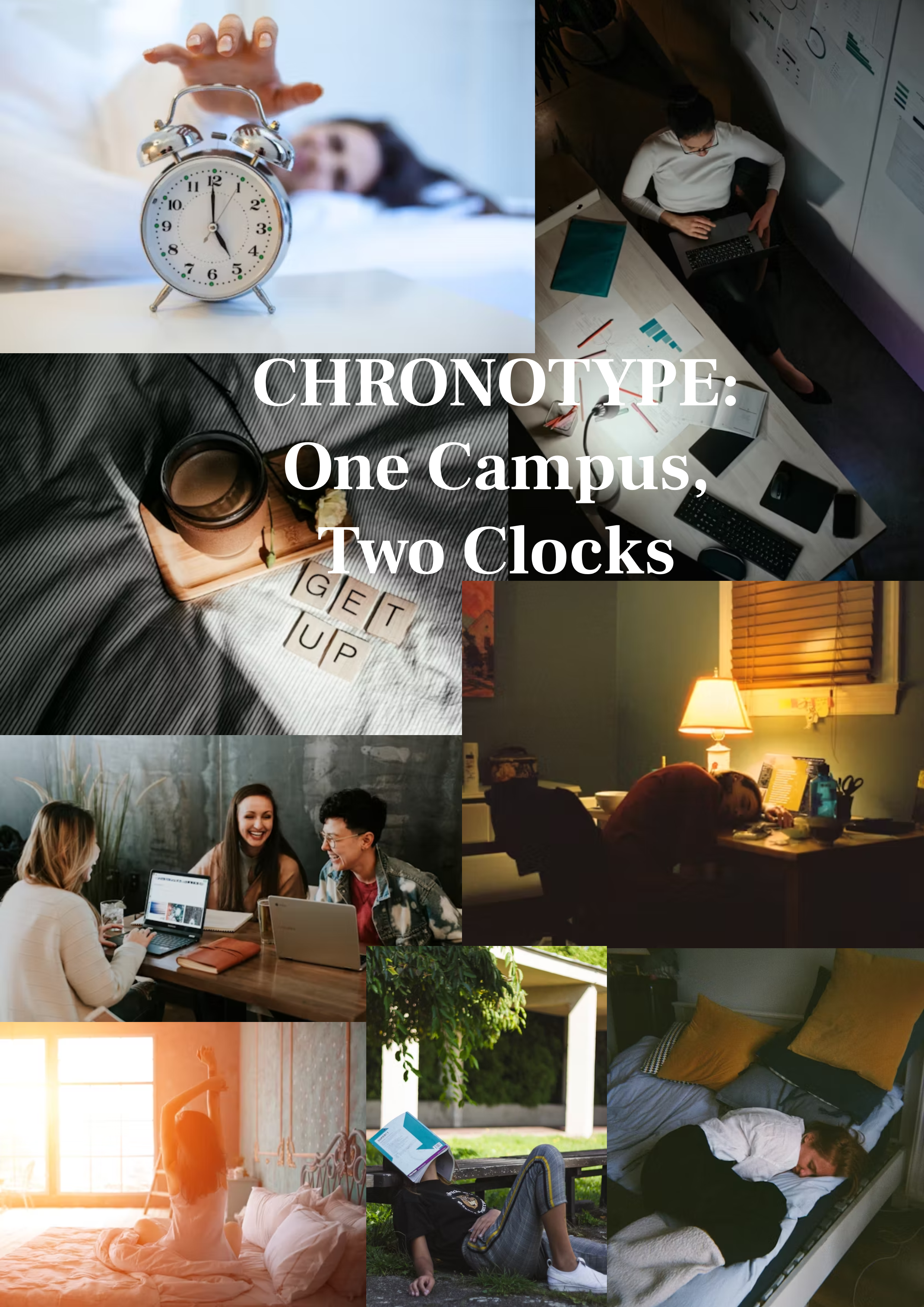
Natasha Cloran
This study explored whether immersive virtual nature could enhance divergent creativity. Forty participants were randomly assigned to one of two VR conditions: nature awe or built neutral. They completed a divergent thinking creativity task, which was scored by Artificial Intelligence (AI) and checked by human raters. While this study found no significant group differences in creativity or immersion by condition, awe was successfully induced in the nature condition and positively correlated with immersion. Findings suggest implications for VR design and emotion-based research, with further replication recommended.
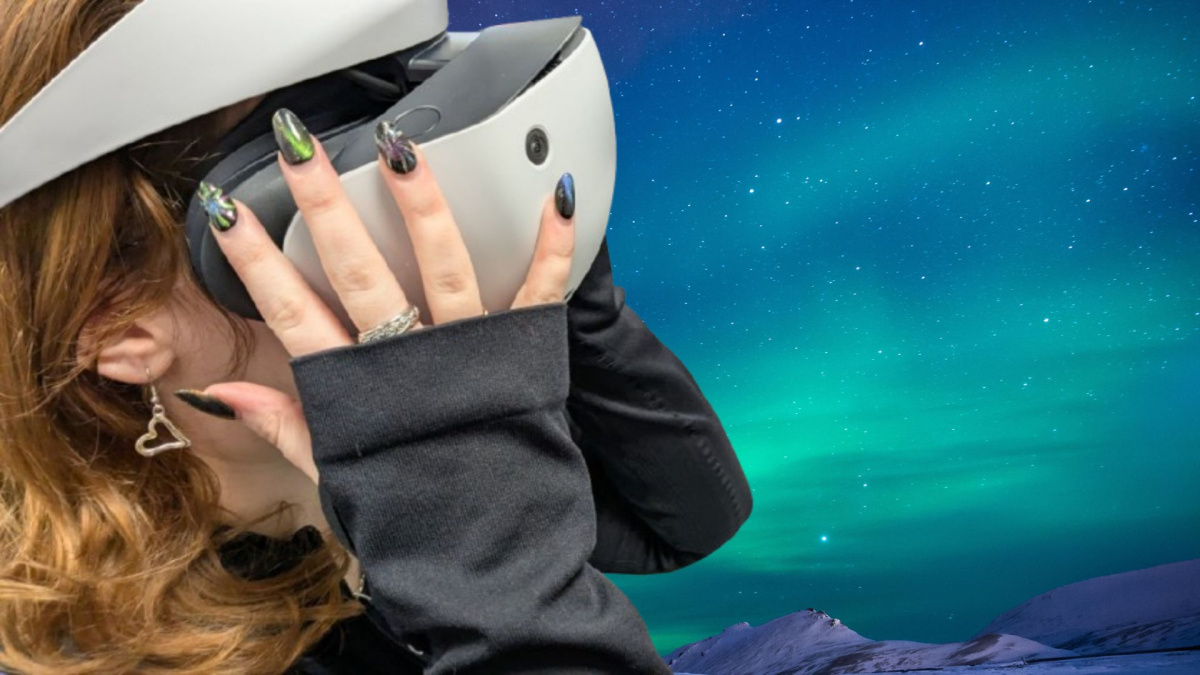
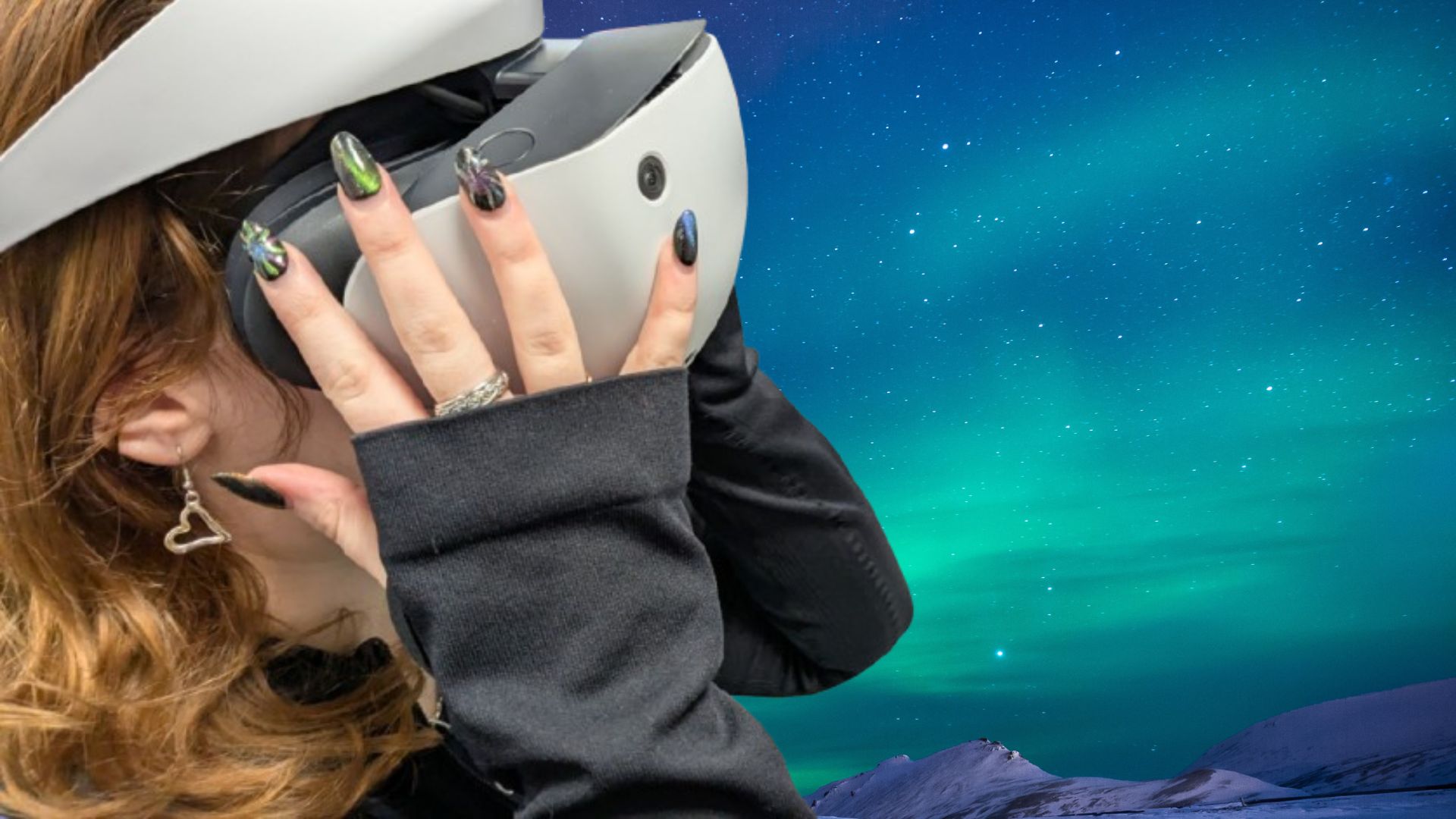
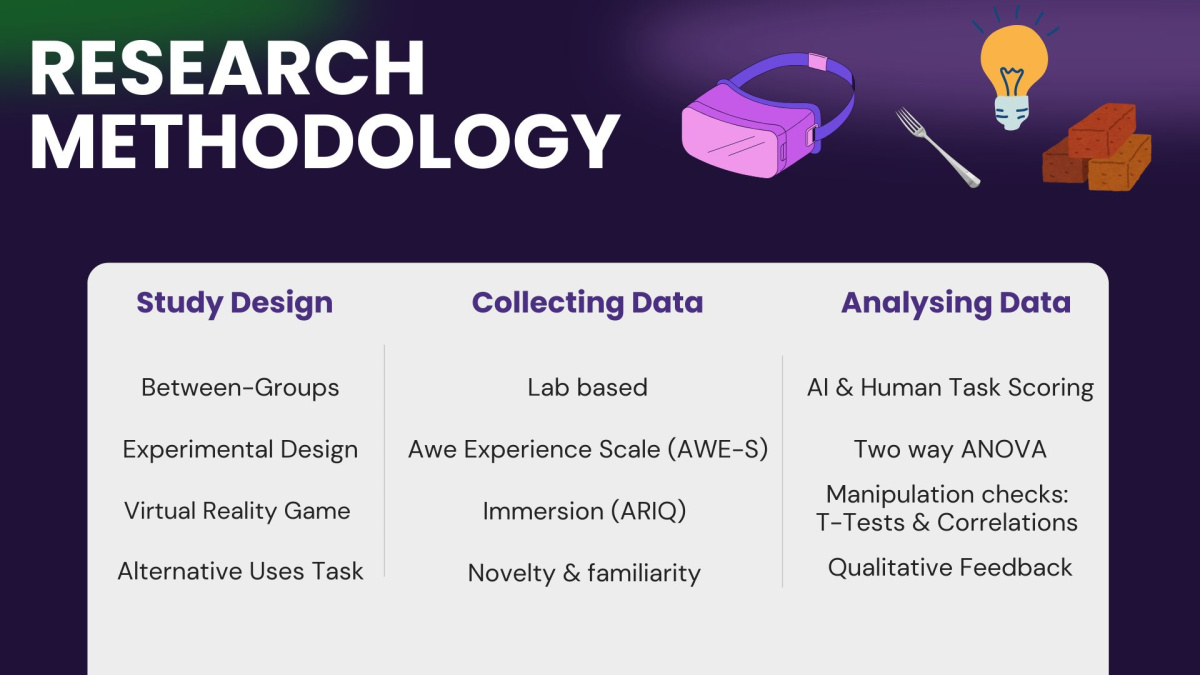
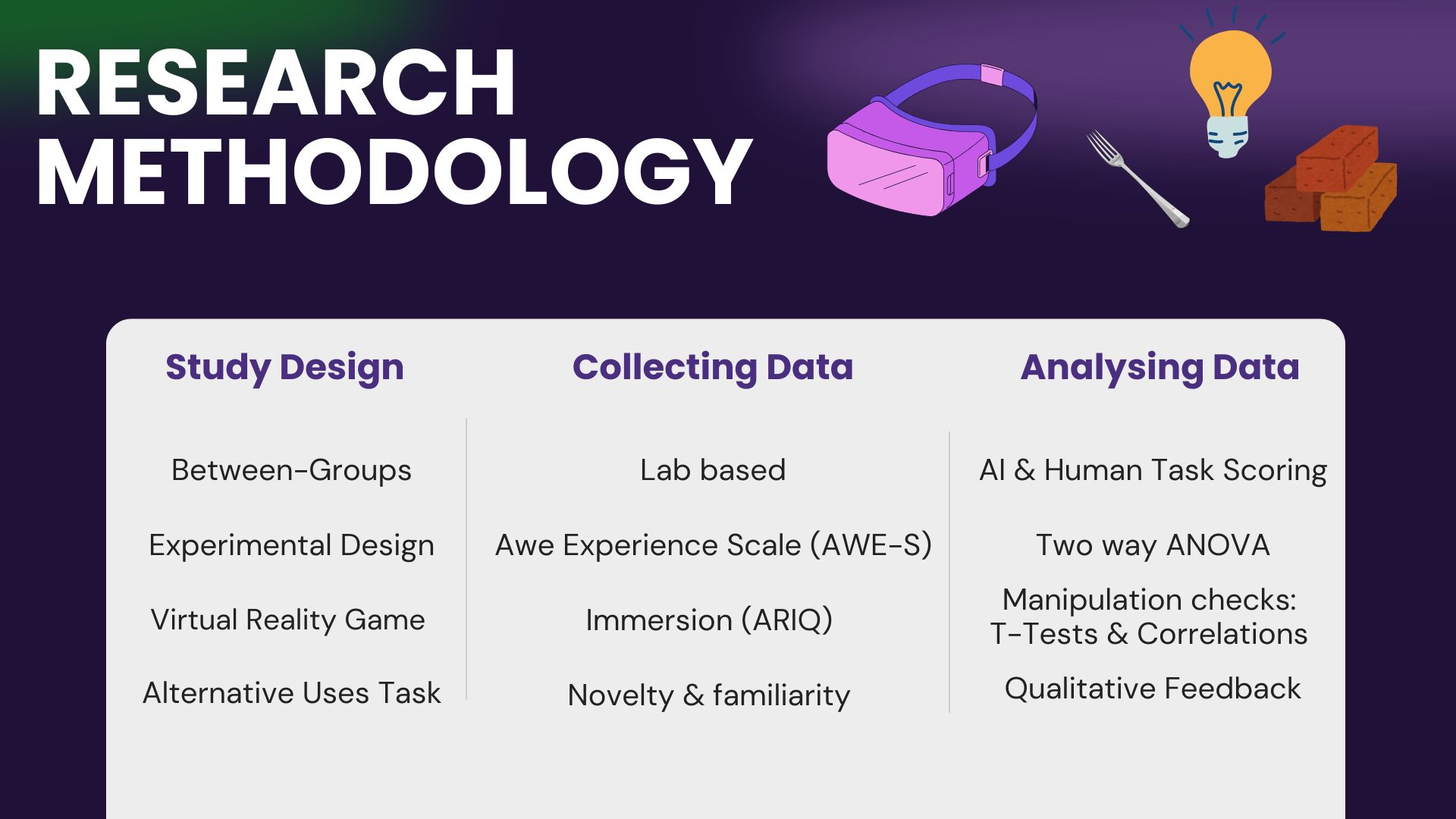
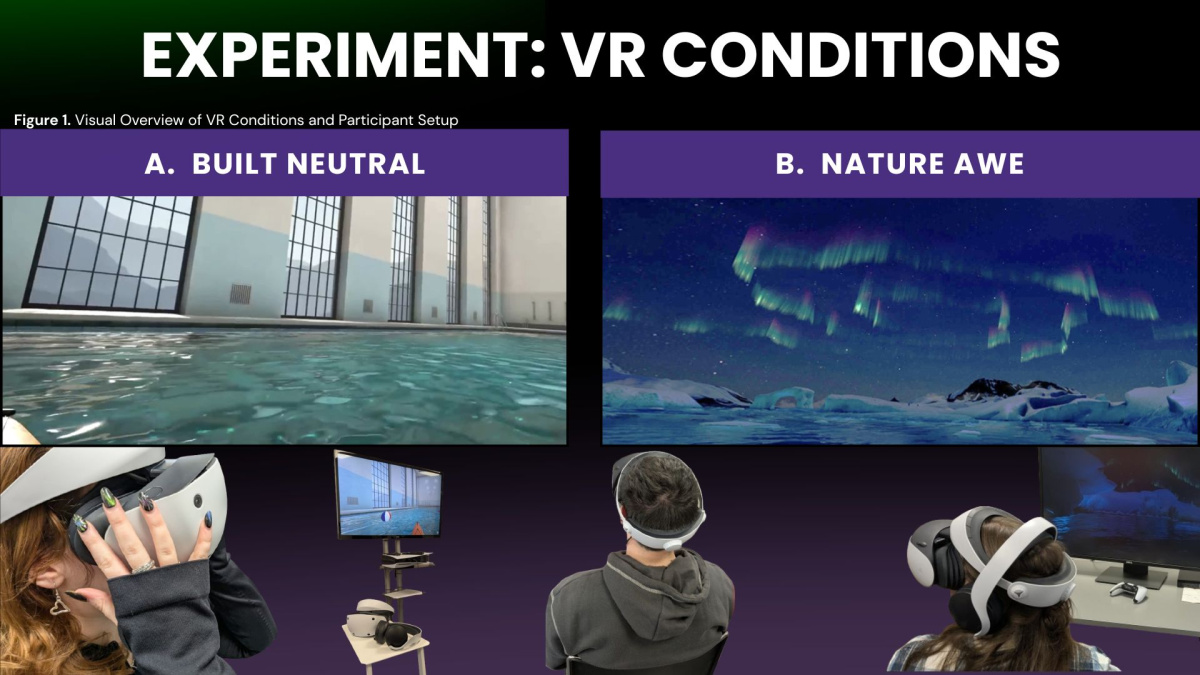

Could spending time in immersive virtual reality (VR) environments, specifically awe-inspiring nature scenes, influence divergent creativity?
Building on research linking awe, nature, and creative thinking, this study explored how different VR experiences (nature vs. built environments) impact subtypes of creativity in idea generation (divergent thinking), including originality, elaboration (detail), and flexibility (variety of ideas). The goal was to better understand the role of awe, immersion, and novelty in creativity, and to evaluate the use of AI tools in scoring divergent thinking tasks.
The study found no significant difference in total or subtype creativity scores between VR conditions. Awe was successfully induced in the nature condition, and a positive correlation was found between awe and immersion - suggesting that participants who felt more immersed also experienced greater awe. AI tools were effective for scoring, with human raters confirming accuracy in selected cases. While the study was underpowered, it highlighted key areas for further research, including the value of immersive design and the potential for emotion-focused VR interventions. This research sparked my interest in how awe and emotional design might support therapeutic or educational VR interventions.
This study explores the effects of immersive awe and virtual nature on an individual's divergent creativity in a between-groups experimental design. Prior research has found that nature awe experiences and creativity are positively linked, and that virtual reality (VR) can elicit intense emotional states. Forty participants randomly divided into two VR conditions (nature vs. built) completed a divergent thinking task. Creativity subtypes were scored using two AI tools: an open-source system (originality/elaboration) and a large language model (flexibility). Human raters, blind to condition, checked a sample of originality and flexibility scores to assess AI reliability. Results include no significant differences in total or subtypes of divergent creativity between VR conditions. No group differences in immersion were found. Novelty measures were unreliable for statistical analysis. Awe was manipulated as intended in the VR nature condition. Although not hypothesis-driven initially, a significant positive relationship was observed between awe and immersion levels, which may have conceptual and practical implications. Results suggest participants who felt more present in the experience reported stronger feelings of awe. These findings have applications in game design and emotion-based psychology research employing VR, suggesting immersion and novelty as co-variates. While the study was underpowered, findings support further replication.

Completing the BSc (Hons) in Applied Psychology (technology pathway) gave me a strong foundation in psychology and well-being and sparked a deep interest in cyberpsychology, positive psychology, and the role of technology in supporting everyday well-being.
For my final-year major project, I researched the relationship between awe and creativity using virtual reality.
During my time at IADT, I also completed two collaborative N-TUTORR fellowship projects: the first, a classroom intervention presented as a poster, focused on study mastery and goal-setting; the second, delivered as an oral presentation, involved developing an online course with a digital badge on transferable employment skills.


